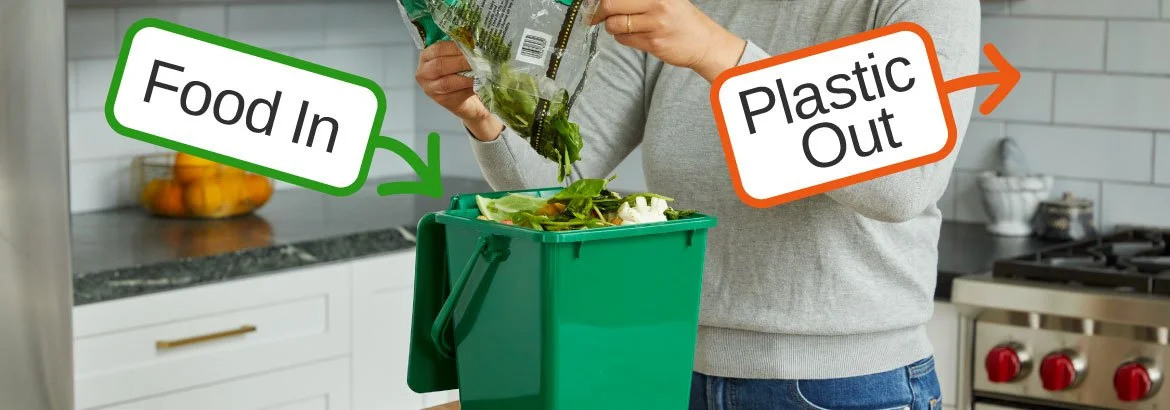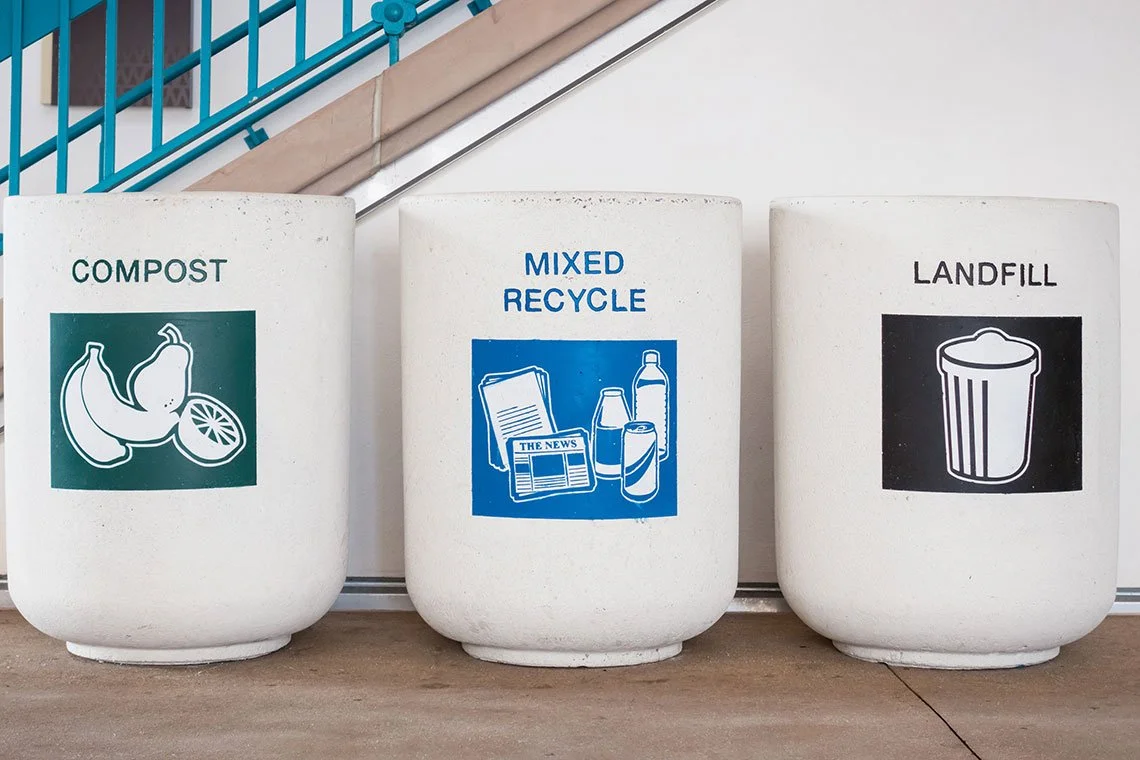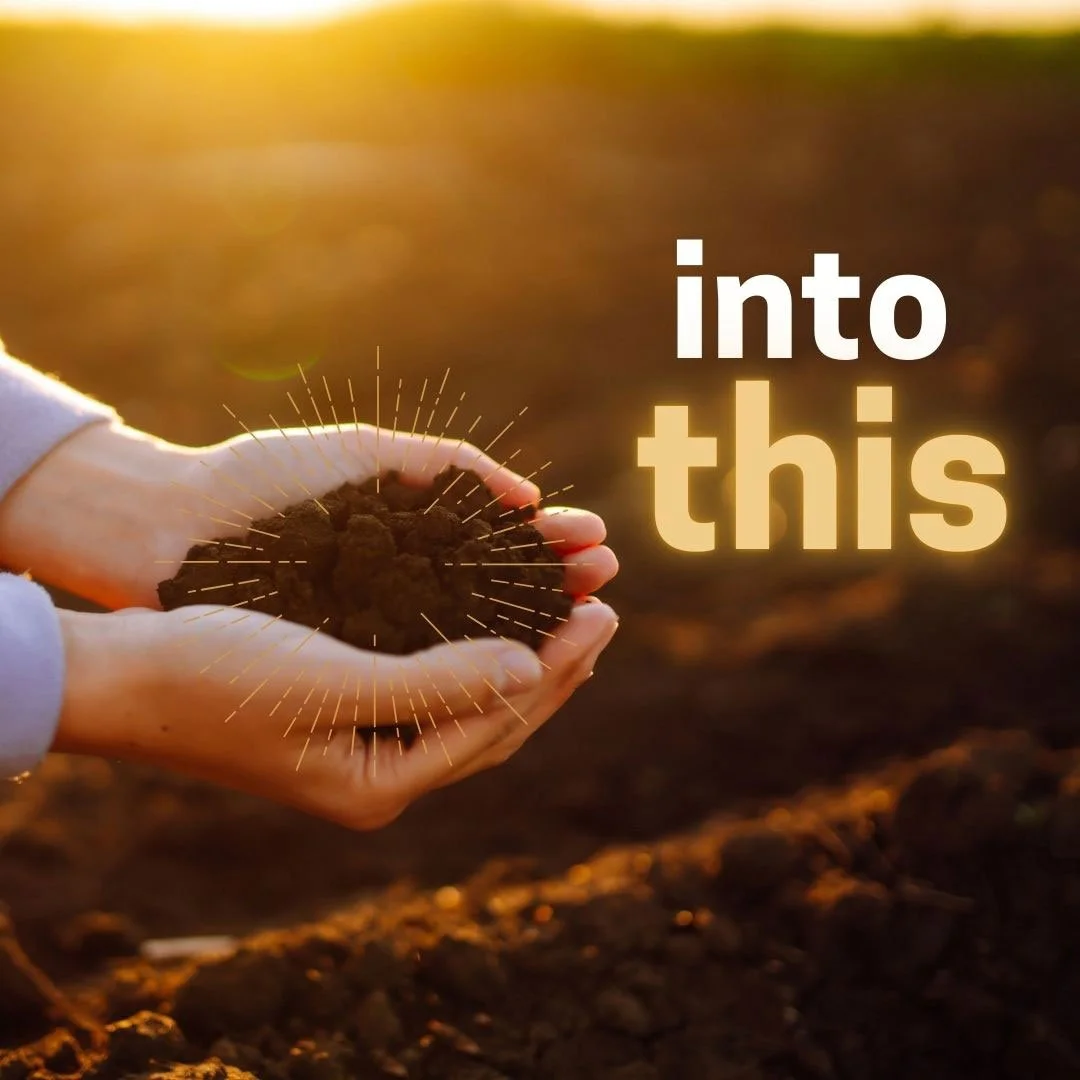Healthy Compost
Combat Climate Change
Organics like food scraps and yard trimmings make up 30% of what Californians dump in landfills. Organic material in landfills emits 20% of California’s methane, which is a highly potent greenhouse gas and a major contributor to climate change. One of the most effective ways you can have a positive impact on our climate is to help keep organic materials out of the landfill – simply by using your curbside collection services if you have them.
Throughout the Bay Area, curbside collection services help turn food and yard trimmings into mulch, compost, livestock feed, and renewable energy. Compost created from local organic materials is put back into our farms, parks, and landscapes, so keeping plastic, glass, and other trash items out of the organics is important to ensure that it is healthy and safe for communities.
Programs are different depending on where you live and work so to be sure to keep the maximum amount of organic material out of the landfill, please check local instructions. Here are quick links to participating BayROC area programs.
-
San Mateo County
http://healthycompost.org/ and https://www.smcsustainability.org/waste-reductionGreenWaste Recovery, Inc.
Serves Atherton, Portola Valley, Woodside and the Unincorporated Unfranchised Area of San Mateo County (Los Trancos Woods, Vista Verde, Sky Londa, Kings Mountain, and Woodside).Kunz Valley Trash and Recycling
Serves the Unincorporated Unfranchised Area of San Mateo County (La Honda, Sky Londa, Loma Mar, Pescadero, San Gregorio, and Woodside).Recology of the Coast
www.recology.com/recology-of-the-coast/pacifica
Serves Pacifica. www.recology.com/recology-of-the-coast/el-granada-pillar-ptmiramar-princeton-montara-moss-beach Serves El Granada, Pillar Point, Princeton, Miramar, Montara, and Moss Beach.Recology San Bruno
Serves San Bruno.Recology San Mateo County
Serves Belmont, Burlingame, East Palo Alto, Foster City, Hillsborough, Menlo Park, Redwood City, San Carlos, San Mateo, the West Bay Sanitary District, Ladera, and Unincorporated County Areas within the Rethink Waste Service Area (Baywood Park, Burlingame Hills, Devonshire Canyon, Emerald Lake Hills, Harbor Industrial, Kensington Square, North Fair Oaks, Oak Knoll, Peninsula Golf Club, Palomar Park, San Mateo Highlands, Sequoia Tract, and Trailer Ranchero).Republic Services of Half Moon Bay
Serves Half Moon Bay, and the Unincorporated Unfranchised Area of San Mateo County (La Honda, Sky Londa, Loma Mar, Pescadero, San Gregorio, and Woodside).Republic Services of Daly City and Colmawww.republicservices.com/municipality/daly-city-ca
Serves Daly City and Broadmoor. www.republicservices.com/municipality/colma-ca Serves Colma.South San Francisco Scavenger Company, Inc.
Serves Brisbane, Millbrae, and South San Francisco.Solano County
Sort Right
photo by iStock.com/benedek
Whenever you have the opportunity, please do your part to separate organics and recycling from trash.
Whether you are at work, a café, school, or event, you may come across a three-bin sorting station. Please separate your recycling and organics according to the signs; even a banana peel makes a difference!
Prevent Waste
Reducing the organic waste we generate is the most effective way to keep it out of the landfill, and requires less resources.
Preventing food waste is the best way to help the climate and save money. Check our tips to prevent food loss.
Opting for native drought-resistant landscaping can reduce plant waste, save water, and create a natural habitat for local birds, bees, butterflies and other wildlife.
Get Free Compost
Depending on where you live, the food scraps and plant trimmings you put out for collection may be turned into compost used on gardens and farms. Please check with your local city or for news about compost giveaways. Here are some resources to help you get started. If the compost is still warm, let it cool before you spread it. Beware of contaminants and which plants you use the compost on.
San Mateo County – Rethink Waste Service Area
Using compost for your plants helps add nutrients to the soil, grow healthier, more pest-resistant plants, improves drainage, reduces soil erosion, and increases soil water holding capacity to reduce water use.
Make Your Own Compost
Composting at home is an effective way to keep those valuable food and plant resources, and turn them into a nutrient-rich soil amendment for your yard and garden. Why buy it, when you can make it yourself from scraps?
Free workshops are available to help you get started. If you don’t have a yard, you can still compost at home – with compact vermicompost systems.
Santa Clara County – University of California Agriculture and Natural Resources Community Workshops




